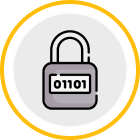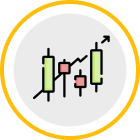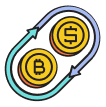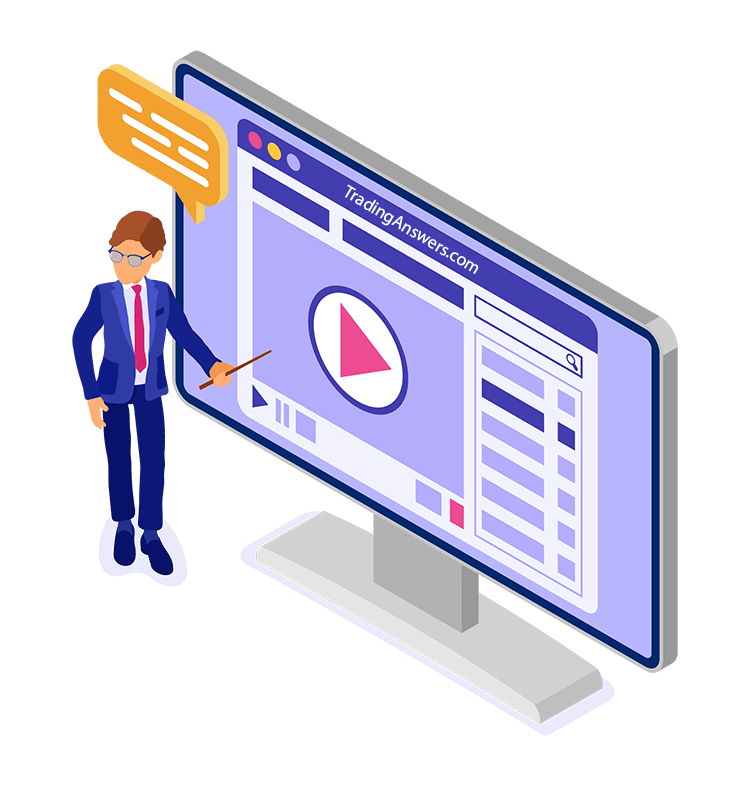Trade with confidence
You Have Trading Questions,
We Have Trading Answers
Uncover the Truth: Your Trading Questions Finally Answered!
Trading Tools & Software
Unlock Your Trading Success with Superior Tools & Software
Trading Knowledge base
Leverage Our Knowledge Base for Maximum Success
Reviews & Comparisons
Trusted Online Broker Reviews at Your Fingertips

about us
Answers to Your Trading Questions
Unlock Your Trading Edge: Essential Answers You Can’t Afford to Miss!
- Risk Management
- Trading psychology
- Trading Strategy & Styles
- Software, Tools & Broker reviews
- Technical Analysis
Our Partners
trusted by international companies
Our Services
Helping Traders Make More Informed Decisions
Unlock Your Trading Potential with Informed Decision Making

Software
Trading tools, software and platform needs will depend on your style of trading, analysis and instruments traded.

Knowledge base
Unleash Your Trading Potential: Leverage Our Knowledge Base for Maximum Success

Brokers
A brokerage account is essential for online trading. But how do you compare and choose the best broker for your needs?
Online trading is a brutal industry.
To survive and prosper you need to learn the facts from experienced traders who will “go in to bat for you”, NOT sell the “Lifestyle” or pretend it’s easy.
Like any profession, it takes time to be at the top of your field, and you want to learn from people that have genuinely been there before, and can offer you the knowledge, skills and tools to become a professional in this industry.
Trading Experience
Your Trading Journey, Enhanced at Every Stage

Beginner Traders
Just starting out in the markets? Learn from experienced traders and start on the right footing.

Intermediate Traders
Expand and enhance your current trading knowledge.

Experienced Traders
Premium options for professional traders.

Faqs
The Questions You Always Wanted To Ask
Clear Answers to Complex Trading Questions
Investing and trading are two different methods of attempting to profit in the financial markets.
Investing involves buying an asset you believe has long-term value and holding onto it, potentially for years, before selling it. It focuses more on long-term growth of the asset.
Trading, on the other hand, is a more frequent buying and selling of stocks, cryptocurrency, commodities, currency pairs (FOREX) or other instruments, with the goal of generating returns that outperform buy-and-hold investing. It is typically done over a shorter period, ranging from a few minutes to several months.
Both have their own risks and rewards and suitability would depend on an individual's risk tolerance, market knowledge, time commitment, and financial goals.
Learning to trade can be a challenge as it involves understanding financial markets, mastering trading strategies, and managing risks. It requires time, dedication, and continuous learning.
However, with the right resources, attitude, and practice on demo accounts, anyone with an interest in finance and a willingness to learn can start their trading journey.
It's important to remember that while learning to trade might be straightforward for some, becoming consistently profitable is often extremely difficult and requires plenty of practice and experience (as it does to excel in any industry).
Starting to trade involves several key steps:
- Education: Learn about financial markets, trading strategies, risk management and how trading works.
- Choose a Trading Style: Decide if you want to be a day trader, swing trader, or long-term investor based on your time commitment and risk tolerance.
- Set a Budget: Determine how much capital you're willing to risk. Never trade with money you can't afford to lose.
- Develop a Trading Plan: Define your financial goals, risk tolerance, methodology, evaluation criteria and backtest it to ensure your plan has positive expectancy (on average, your winning trades will earn more than your losing trades over time).
- Choose a Broker: Find a reliable broker that suits your needs in terms of fees, platform usability, customer service and trade execution speed.
- Open a Trading Account: Fill in the necessary details to open your account with the broker. You will need to submit identification for verification.
- Practice: Use the broker's demo account to practice your trading strategies without risking real money.
- Start Trading: Begin with small trades to manage your risk effectively and gradually increase as you gain more experience and confidence.
- Monitor and Adjust: Keep track of your trading performance, learn from your mistakes and successes, and adjust your trading plan as needed.
Remember, successful trading takes time, patience and discipline.
The amount of money needed to start trading varies based on many factors which include, but are not limited to:
- the trading platform/account (account type minimum initial deposit and margin requirements if applicable),
- style of trading,
- instrument you trade (and whether you are using leverage or not),
- regulations in your country/jurisdiction (local laws and regulation),
- your risk tolerance and personal financial situation.
Some online brokers allow you to open an account with as little as $25, while others may require a minimum deposit of $5,000 or more.
With regard to regulators... as an example, if you are classed as a pattern day trader in the U.S. (You're deemed a pattern day trader if you perform four or more day trades within five business days, given that these trades represent over 6 percent of your total trades in the margin account for the same period.), the Financial Industry Regulatory Authority (FINRA) enforces a minimum equity requirement of $25,000.
However, the key to this question is that you must only ever invest money that you can afford to lose.
Start with a small amount that won't significantly impact your financial well-being if you were to lose it all.
As you gain experience and confidence, you can gradually increase the amount you trade with.
To be honest, there is a high probability this could be the case, simply because the online trading industry is incredibly diverse.
There are so many different styles of trading, instruments to trade, regulations in various countries, terminology and nuances, as there is with every other profession or industry.
Having said this, our fundamental goal is to help you find genuine answers you are looking for, as easily as possible.
Therefore, if the answer isn't here, please contact us so we can include your query and its solution on the Trading Answers website. It benefits you and other traders - a win for all.
Help Us Help You: Easily recommend trading topics and questions for us to cover by completing our Trading Answers survey or contact form.
blogs
Stay up to date with the latest news
News from the markets, our latest software releases, reviews, and more.
